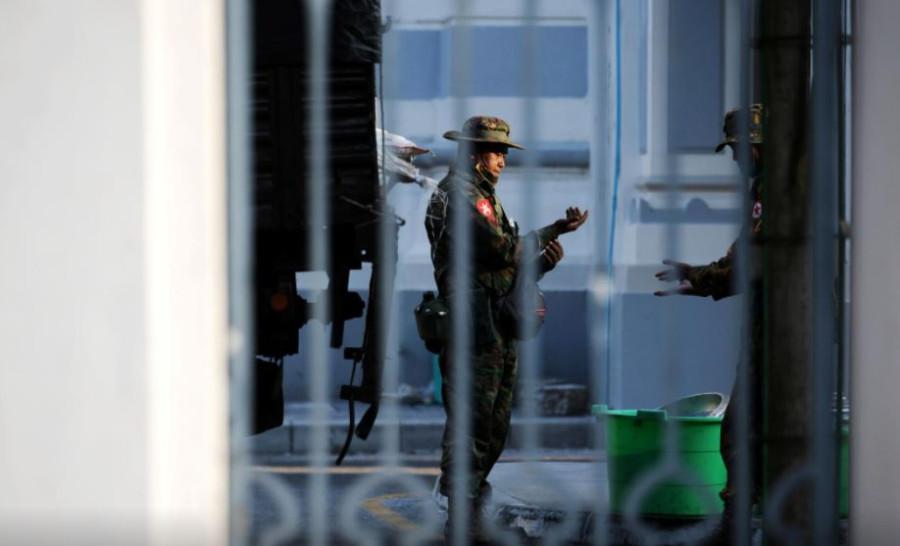Editorial
Coup in Myanmar
Nepal must unequivocally condemn the military's desecration of democracy in the neighbouring country.
To Nepalis waking up on Monday to the news of a military coup in Myanmar, it was a major nudge amid political uncertainties of how quickly civilian supremacy can be squashed. It was exactly 16 years ago on this day that King Gyanendra had assumed absolute power by dissolving the government led by Sher Bahadur Deuba and declared himself the chairman of the council of ministers. In a move that was strongly condemned by the international community and which plunged the country further into crisis, a state of emergency was declared, the military was out on the streets, phone lines were cut, and senior politicians were put under house arrest.
An ominous date for Nepal is now an ominous date for Myanmar. Hours after staging a coup against the democratically elected government of Aung San Suu Kyi and detaining democratic leaders and activists, including Suu Kyi, ‘in response to fraud’ during November’s general election, Myanmar’s military on Monday in a televised address said power had been handed to the commander-in-chief of the armed forces, and it would hold new elections after a year-long state of emergency and return power to the winner.
The coup comes less than 10 years since the military junta handed over power to a civilian government. Fears were rife since last week when the spokesperson for the armed forces, Brigadier General Zaw Min Tun, had said at a news conference that the military would 'take action' over election fraud. He would not rule out a coup. Tensions are expected as the National League for Democracy led by Suu Kyi won 83 percent of the available seats in the November election. The Union Solidarity and Development Party, the former ruling party created by the military, won only 33 of the 476 available seats.
As the crisis unfolds in Myanmar, governments, human rights groups and key leaders have condemned the detentions and called for the election results to be upheld. The United States is even threatening to take action against those responsible. United Nations Secretary-General António Guterres said the developments were a 'serious blow to democratic reforms' and urged all leaders to refrain from violence and respect human rights. On Monday, Nepal released a feeble press statement that said the country was 'closely following the recent developments in Myanmar'. That is hardly enough. We must unequivocally condemn the military's desecration of democracy in the neighbouring country. We must also strongly ask the military to step back and let the hard-fought democracy flourish.
Monday was supposed to be the new Parliament’s first session, which would have approved the next government led by Suu Kyi; but the coup has set Myanmar on an uncertain path. The military’s power grab, consequent detentions of political figures, and any justifications for the coup are unacceptable. It is a shocking reversal of all democratic reforms that made an election possible in Myanmar after decades of military rule. The military, which claims it will hold fair and free polls, must acknowledge that it adheres to democratic principles and institutions in the first place. Without conditions, it should immediately release everyone it has unlawfully detained, undo all communications disruptions, and show the maturity to respect the people’s choice.




 8.22°C Kathmandu
8.22°C Kathmandu














